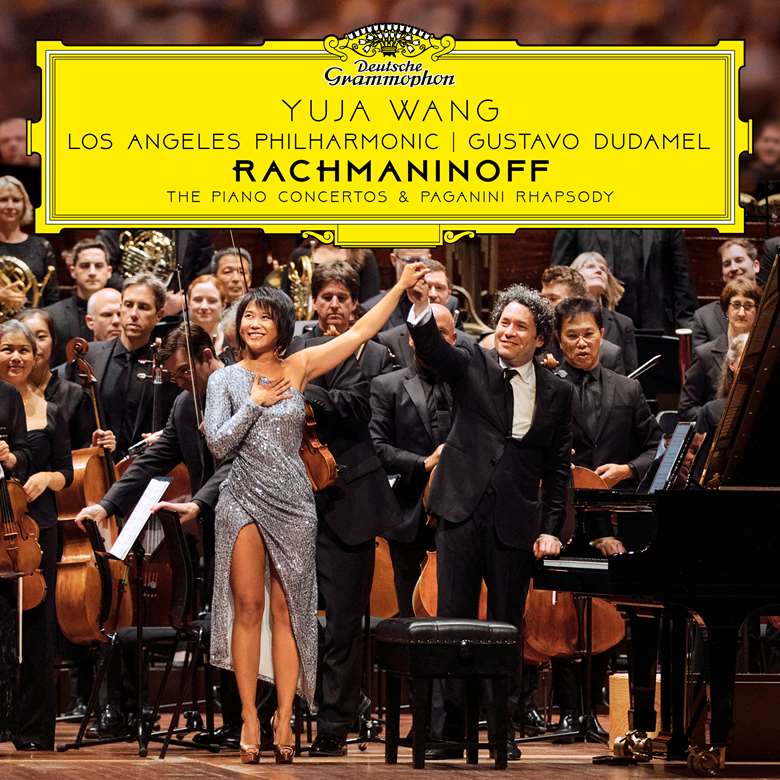Rachmaninov: Four Piano Concertos; Rhapsody on a Theme of Paganini, Op 43 (Yuja Wang)
Bryce Morrison
Tuesday, September 12, 2023
If there is any pianist who can command the necessary delicacy, power and underlying emotional fervour it is Yuja Wang, united to perfection with Gustavo Dudamel

Yuja Wang pf
Los Angeles Philharmonic Orchestra / Gustavo Dudamel
DG 486 4759
That Yuja Wang performed all four of Rachmaninov’s piano concertos together with the Paganini Rhapsody in a single evening strains credulity. These performances are not from that occasion at Carnegie Hall but were recorded shortly afterwards, in February this year, live in Los Angeles over a period of less than two weeks. If there is any pianist who can command the necessary delicacy, power and underlying emotional fervour it is Yuja Wang, united to perfection with Gustavo Dudamel. From Wang all that glitters is gold. And it is in this sense that any suspicion of showmanship, of a physical and mental endurance test, is erased. These performances are like no other.
This is particularly true of the First and Fourth Concertos (which Wang has not recorded previously). The F sharp minor Concerto’s opening octave plunge (a dizzying elaboration of the opening gambit of the Grieg Concerto) together with page after page of an all-inclusive virtuoso aplomb is enough to set even the most resistant or puritanical heart aflutter. Wang’s awe-inspiring playing is even more evident in the bittersweet Romanticism of the Fourth Concerto, where Rachmaninov’s lyricism comes reflected, as it were, through a distorting mirror, a faithful reminder of the composer’s exile from his beloved Russia and attempts to move with the times. Once considered the ugly duckling of the set, the Fourth Concerto is many pianists’ favourite and Wang’s way with its sardonic poetry is awesome and enthralling at every level.
Yuja Wang lifts the scintillating Paganini Rhapsody to another level from her previous studio recording, any reticence abandoned in favour of greater edge and character – never more so than in the whirling reel of Var 15 or in the imitation of the violins’ pizzicato in Var 19. In the Second Concerto her opening is more measured and dramatic than in her previous recording (the reverse, for example, of Stephen Hough’s rapid dismissal of its mounting tension and grandeur), but in the final pages she ramps up the pace and passion in a blaze of excitement.
But it is in the Third Concerto (which pushed even Rachmaninov close to his limit; he joked that he composed it for elephants) that Wang and Dudamel storm the heights, echoing and even excelling their earlier live recording from 2013. Wang’s first entry in the central Intermezzo is wild and audacious, and then in the same movement’s skittering scherzando variation with its volleys of repeated notes you are made conscious of a seemingly unlimited resource. Fast and furious and with all guns firing in the finale’s militaristic clangour and fervour (though wondrously sensitive to its more fanciful intervals), she roars to the tumultuous conclusion, bringing an unforgettable performance to an unforgettable end. Even with recordings of the concertos by pianists of the stature of Horowitz, Richter, Gilels, Michelangeli and Van Cliburn (his live performance taken from the 1958 Tchaikovsky Competition), Yuja Wang takes her own special place. I remain grateful that DG was on hand to capture such an epic series of concerts.






